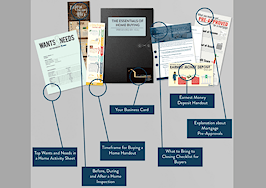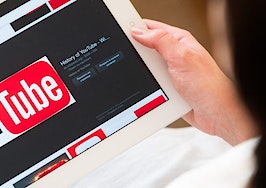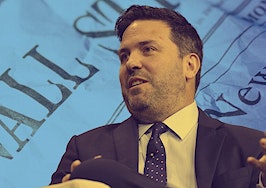- Testimonials can do more for you business by establishing trust between you and potential clients.
- Testimonials serve as undeniable proof of your capabilities.
Have you ever chosen a restaurant or hotel based on the reviews you read on sites such as TripAdvisor and Yelp?
If you’re like most, you rely on those other opinions to guide your own decisions despite the fact that you know nothing about their taste in restaurants.
Dr. Robert Cialdini, the author of Influence: The Psychology of Persuasion, refers to this as social proof, or the herd mentality.
He states that humans are conditioned to believe that, when faced with a limited amount of information, following the advice of others is the safest path.
Dr. Cialdini goes on to state that humans are less likely to believe what people have to say about themselves, and more likely to believe what other people have to say about them.
So, how can you harness this power of social proof to improve your business?
Through testimonials.
What makes a great testimonial
There’s a vast difference between a typical testimonial, which goes something like, “Mary is a great agent. We highly recommend her,” and a testimonial designed to convert prospects into clients.
A great testimonial that will help you acquire new business helps your prospects see how you helped homeowners with situations similar to their own.
How to get a well-written testimonial
When asked for a testimonial, most clients are unsure of what to say or how to articulate an effective message.
In order to get the content you need to craft a usable testimonial, I suggest providing your client with a short form that includes the following questions:
- What were your goals or concerns while selling your home?
- How did I help you achieve your goals or overcome your concerns?
- What results did you achieve by working with me?
Provide adequate space after each question for the client to write their answer.
At the bottom of the form, provide a statement that says you reserve the right to edit the homeowner’s comments for brevity, provided the overall message is not misconstrued.
State that, by signing the form, the homeowner is giving you permission to use his or her comments in your marketing.
I also encourage you to list the client’s first and last name as well as the address of the property you sold; I’m skeptical of testimonials with partial names, such as “A. Smith” or “Andrew S.”
Full names and addresses are better because they are searchable, meaning doubters have the ability to confirm the legitimacy of a great testimonial.
A hypothetical testimonial
Let’s look at an example of how the client’s situation might influence the testimonial you receive.
Your clients, Mr. and Mrs. Wilson, had not sold a home in over 30 years. They were on a limited budget and unsure were to focus their time and money when it came to preparing their home for the market.
You helped them focus on things that would have an impact on potential buyers, such as curb appeal and select repairs to items identified in a pre-listing inspection.
The end result was that their home showed very well, received positive feedback and sold in record time for an amount within 4 percent of the asking price.
Following the outline we established above, a well-written testimonial might sound something like this:
We had not sold a home in over 30 years and were feeling very overwhelmed by everything we had to do to get our home ready. We weren’t sure where to spend our time or money.
Mary helped us focus only on things that would make an impact on potential buyers, which saved us valuable time and lots of money.
Once we were on the market, the feedback was very good. We sold our home faster than we had expected for nearly our full asking price.
That testimonial would definitely help you secure future listings.
Organizing testimonials
Your first step is to begin collecting testimonials from past and current clients. Then, build a resource library of testimonials and organize them based on the sellers’ situations.
Depending on your business, you should have testimonials that apply to:
- Expired listings
- FSBOs
- Homeowners who hadn’t sold in many years
- Luxury homes
- Distress sales
Using testimonials in direct mail
Include testimonials in postcards featuring your recent sales. In all likelihood, someone in a similar situation will connect with that testimonial and contact you.
Avoid using postcards to go into depth about what a sold home has to offer — that information is useless to potential clients as that home is off the market.
Adding a call-to-action is another great idea; let potential clients know that you’re ready to help them achieve similar results, and offer a free guide to preparing their home for a successful sale.
What a testimonial proves
First, it proves that you are goal-oriented and results-driven — you sold the home, after all!
It also proves that you’re willing to jump hurdles to get clients what they want, you’re great at your job and you’re unwilling to give up in a tough market.
Quick tip: adding testimonials to postcards going out to expired listings is a great idea that might steer more clients in your direction. It’s excellent social proof!
Include testimonials in listing presentations
When a potential client views your listing or pre-listing presentation, they are looking for proof of your abilities.
Most homeowners don’t know the real estate agents they call, so they place a great deal of trust in testimonials; they are choosing the safest path, according to Dr. Cialdini.
Without testimonials, you are trying to force potential clients to believe in your capabilities without proof, and that doesn’t always work.
I email my pre-listing presentation to potential clients before the initial appointment, and I send two or three testimonials made by clients who faced similar situations.
This enables homeowners to see how I’ve helped others successfully achieve similar goals and overcome similar obstacles.
Using testimonials on your website and landing pages
Using testimonials increases the credibility of your website and landing pages by offering the social proof visitors need to believe you’ll provide the results they’re looking for.
All agents generally offer the same services, which means clients aren’t really paying for your unique services — they’re paying for your unique results.
When writing about your real estate and marketing services on your website, be sure to include testimonials from clients who benefited from your particular brand of service and results.
If you are offering a lead magnet — such as a how-to guide or market report — and you’re directing traffic to a landing page where interested homeowners can register to receive your offer, be sure to include a relevant testimonial so visitors feel comfortable signing up with their email.
Conclusion
Having a collection of well-written testimonials is like having a highly persuasive sales force that you can call into action whenever you need them.
The opinion of others carries a lot of weight, even when we don’t know the person providing the recommendation; and, as Dr. Cialdini says, people tend to believe what others say about us more than what we might say about ourselves.
Collecting and using testimonials in your marketing increases its effectiveness by allowing others to tell their story of how your services helped them achieve their goals or overcome obstacles.
Greg Lyles is a real estate coach and trainer in Atlanta with 30 years of experience in real estate. He is the owner of a regional development company and a boutique brokerage, where he sold over $440 million on his own by focusing on two niche markets.
Connect with him on Facebook and LinkedIn.












